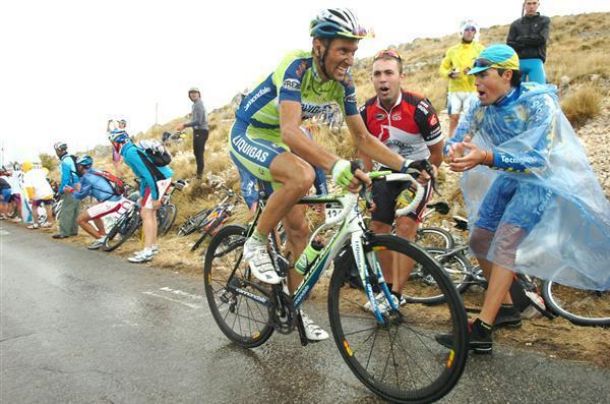Cannondale's Ivan Basso is a man who has been there, done it and got the pink jersey - twice.
The Italian climber's record includes two Giro d'Italia victories, in 2006 and 2010, and although at 36 he is one of the professional peloton's elder statesmen, it would be a fool who discounted a rider of his experience and ability.
Basso rose to prominence during the 2002 Tour de France, where he finished eleventh in the general classification and winning the white jersey awarded to the best young rider in the race while riding for Fassa-Bartolo. He went on to improve on that result the following year, finishing seventh despite a food poisoning crisis which stripped him of all but two of his team-mates.
Despite these results, a strained relationship with Fassa-Bartolo directeur sportif Giancarlo Ferretti resulted in him departing for Bjarne Riis' CSC team (now Tinkoff-Saxo) following the 2003 season.
The main aim for Basso, as CSC's leader for the 2004 Tour de France, was to challenge for the yellow jersey. Although he generally rode strongly throughout the race, winning Stage 12, he was let down by his time-trialling and eventually finished third, six minutes and forty seconds behind eventual winner Lance Armstrong (although Armstrong would later be stripped of all seven of his Tour victories after being found guilty of doping offences). Basso, along with team-mate Carlos Sastre, worked tirelessly to improve his aerodynamic position, and his time-trialling became a point of significant improvement over the following seasons.
This improvement was demonstrated perfectly during the 2005 Diro d'Italia. Although illness robbed him of the chance to compete effectively for the maglia rosa (pink jersey), Basso was able to win two individual stages, one of which was the Stage 18 time-trial. He also improved on his previous Tour de France performances, finishing second, once again behind Armstrong.
The 2006 Giro d'Italia was where Basso finally left an indelible mark on the cycling world. After riding to a solo victory in the eighth stage, a win which gained him the overall lead in the race, he held onto the maglia rosa for the remaining 13 days, producing a dominant Giro which left him with a time margin of nine minutes and 18 seconds between himself and second-placed José Enrique Gutiérrez, the largest margin of victory in the Italian Grand Tour since 1965.
However, Basso's career was soon to be overshadowed by controversy, after he was implicated in the Operación Puerto investigaton, where a number of top athletes were accused of doping. As a result, Basso did not ride the 2006 Tour de France, a race many thought he could have won following his performance in the Giro d'Italia. Although he was cleared of any involvement due to insufficient evidence, Basso left CSC by mutual consent at the end of the 2006 season.
However, shortly after joining the Discovery Channel Team, the investigation into Basso's alleged doping was re-opened, and he admitted that he had attempted to engage in blood doping, although he never succeeded. He received a two-year ban, ruling him out of the sport until October 2008.
After returning, Basso signed for Liquigas and set about attempting to rebuild his reputation and win his second Grand Tour. The result he craved finally arrived in the 2010 Giro d'Italia, where, on Stage 19, he out-climbed race leader David Arroyo to claim the maglia rosa once more, which he held onto until the end of the race.
Basso's most recent Giro outing came in 2012, where he finished fifth overall. However, with the right team behind him, the veteran Italian can go all the way, and he will be eager to prove that he can still mix it with the best talent cycling has to offer.









































